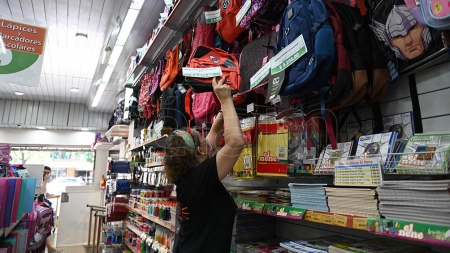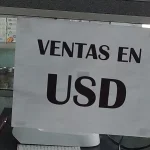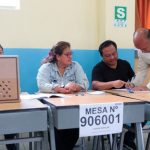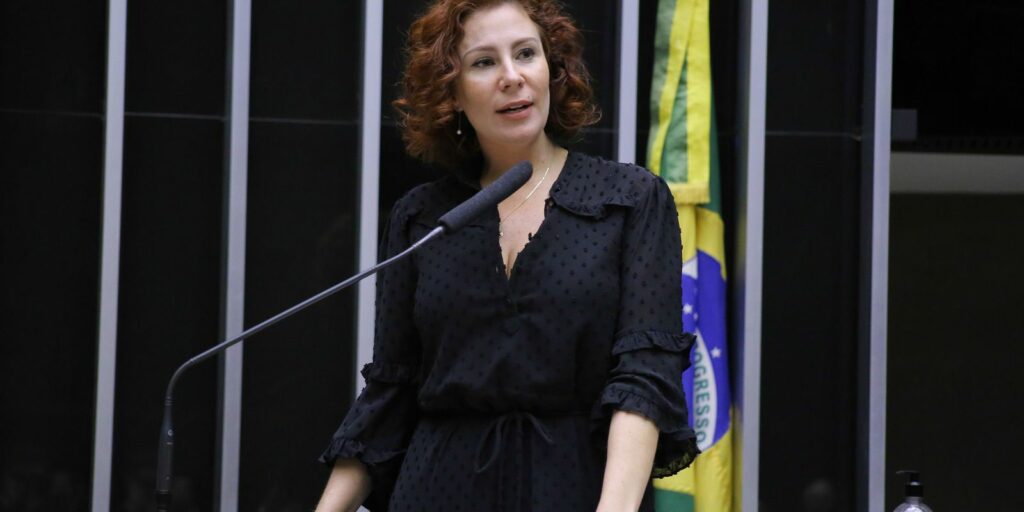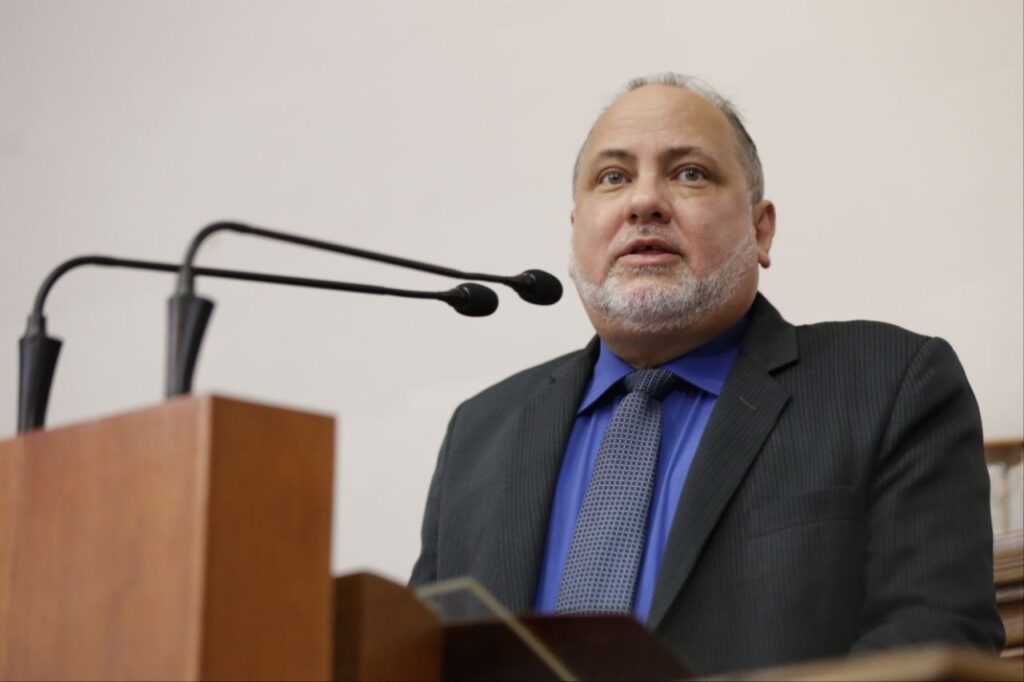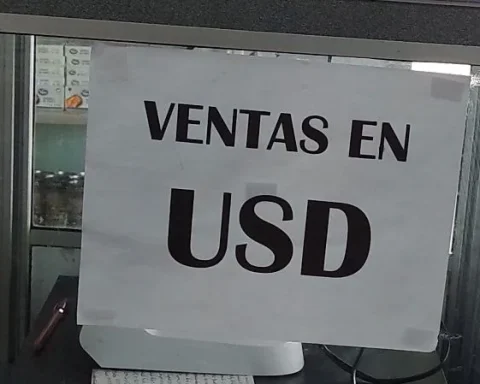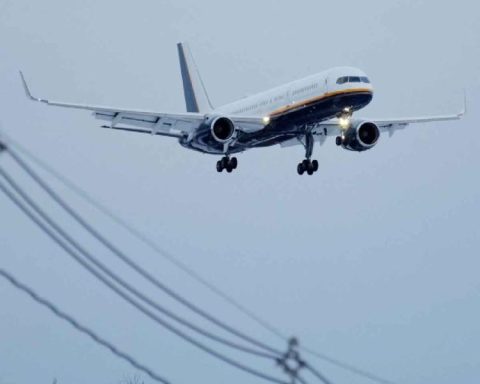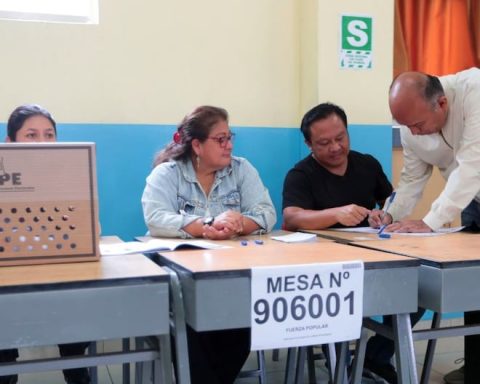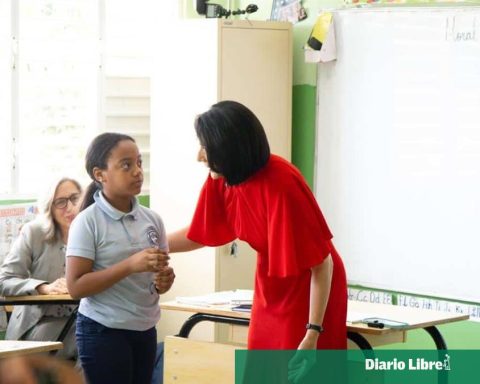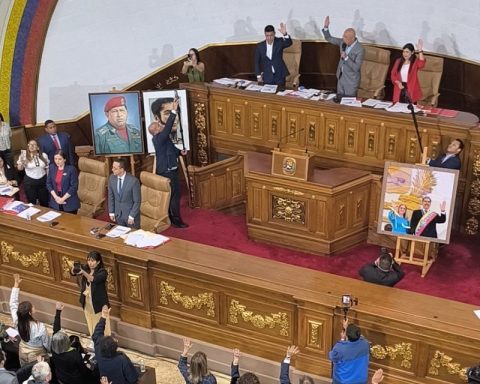The extension of the Fair Prices Program until next June will introduce as a novelty a cap on the increases in private school fees and the incorporation of school products, thus adding to food, textiles, medicines and fuel, among other items already present in the initiative.
Facing the new school year that will begin between February 27 and March 2, the government program will incorporate bookstore items and supplies which, like the rest of the products, will have an increase cap of 3 .2% per month or, failing that, they will have a frozen price until June 30.
“It is important to understand that classes start in March and for parents it is a challenge”said the Minister of Economy, Sergio Massa, on Friday at the launch event that took place at the Kirchner Cultural Center (CCK).
The price list for school products, like that of the rest of the expansion of the program, has not yet been released, but it is expected to be published in the coming days.
Together with the Secretary of Commerce, @MatiasTombolini and representatives of the business and trade union sector announce the expansion of the Program #FairPriceswhich at this stage establishes a guideline of 3.2% monthly average in around 50,000 products until June 30. pic.twitter.com/mNgbSmVcue
— Sergio Massa (@SergioMassa) February 3, 2023
On the other hand, the new agreement will also include fees for private schools throughout the country.
Specifically, an increase limit is established for establishments of 16.8% in March, 3.35% in April, May and June; and 4% in July.
The same will be applied to private schools with a state subsidy, a percentage that is between 70% and 80% of all private schools in the country, depending on whether they are secular or confessional schools, according to a 2018 report from the University National Pedagogical (Unipe).
The increase criteria will act as a national reference since the educational system is decentralized and it is the provinces that administer the subsidies and end up authorizing and implementing the increases.
In any case, both the national government and the private school sector trust that the provinces adhere to it, and, for this, next Thursday the Federal Education Council -with the heads of the education ministries of all jurisdictions and Nation – will meet to finish defining the details.
The objective is to stagger the increases and that they are not concentrated in a single month: “There were provinces that had already authorized increases of up to 40% for March or 18% or 24%,” said Massa.

The agreement with the schools is the result of a joint effort between the authorities and the sector.
“Not only did we have contact, but we have worked with the Ministries of Economy and Education, and in coordination with the jurisdictions to reach an agreement that what it does is optimize the distribution of higher cost transfers to tariffs throughout the year. semester”, explained to Télam Rodolfo De Vincenzi, president of the Confederation of Private Education Institutions (CAIEP).
In this sense, De Vincenzi stressed that the agreement seeks “redistribute the increase instead of impacting everything in March”as usually happens at the beginning of each school year, in order, in this way, to “find the balance between the sustainability of family economies and the sustainability of the cost structures of the schools”.
“School and family strive to find solutions to the economic component and, in this case, the State contributes to that coordination. That is why the work that was done,” he added, and indicated that the non-subsidized schools that will not be covered “are a very small group that generally serves the segments of the population with a higher socioeconomic level”.
“A balance must be found between the sustainability of family economies and the sustainability of the cost structures of schools”Rodolfo DeVincenzi
He also explained that once implemented, a monitoring of the “evolution of costs” to verify if the increases cover them, but, in any case, the expectation from the sector is that they cover them.
As a reference, the category of education accumulated an increase of 86.3% last year, almost eight points less than the general index of 94.8%.
However, by concentrating the increases in quotas and supplies, the item usually exceeds the general index by large margins at the beginning of classessomething that the agreement seeks to avoid: in March of last year, for example, the component presented an increase of 23.6%, more than tripling the 6.7% of the general index.
Regarding the increases authorized by each jurisdiction, the province of Buenos Aires last year it had authorized quota increases of 11% in March, 25% in April, 9% in July, 6.2% in October and 10% in December; while the Buenos aires city it applied increases of 10% in March, 9% in April, 15% in July, 20% in October and 14.5% in December.
Private school fees
In the case of the CABAAs of December last year, the authorized fees at the initial, primary, and secondary levels were between $4,519 per month for schools with 100% subsidy and $31,098 for those that receive a 40% contribution, with the possibility of adding up to 50%. more to establishments with full or extended hours, according to the General Directorate of Private Management Education (DGEP).
Meanwhile, in the Buenos Aires province the range is similar, ranging from $4,348 for kindergartens and elementary schools with 100% subsidy, and $29,223 for technical or specialized schools with 40% subsidy, the category with the least state contributions.

In addition to the educational field, Fair Prices will cover almost 50,000 consumer products, clothing, supplies disseminated. motorcycles, bicycles and medicines, among other categories.
The extension of the program until June, the result of a agreement with almost 482 companiesestablishes a pattern of 3.2% increase instead of the 4% that had been in force since November when the first stage of the program was launched, after evaluating the fiscal and reserve accumulation goals.
In addition to the cap on increases, there will be close to 2,000 products that will have an increase of 9% at the beginning of the new stage and then have their prices fixed and without modifications until the end of June.
On the other hand, a new control system through software developed by Arsat and Amazonwhich will be managed by the Secretary of Commerce and which will allow monitoring in real time if the price commitment assumed by the companies is being met in the large outlets.
